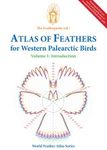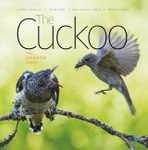About this book
Birds are the most diverse group of land vertebrates and have evolved to exploit almost every terrestrial niche on earth. They also serve as a natural reservoir for an array of different pathogens that pose serious health risks to human and domestic animal populations, including West Nile virus, highly pathogenic avian influenza viruses, Newcastle Disease virus, and numerous enteric pathogens. Avian diseases are also critically important to the conservation of endemic bird species in many places around the world.
This accessible textbook focuses on the dynamics of infectious diseases for wild avian hosts across every level of ecological hierarchy, from the way pathogens interact with the physiology and behavior of individual hosts, the evolutionary and ecological dynamics of the host-parasite interactions occurring within populations, up to the complex biotic and abiotic interactions occurring within biological communities and ecosystems. Parasite-bird interactions are also increasingly occurring in rapidly changing global environments – thus, their ecology is also changing – and this shapes the complex ways by which parasites influence the inter-connected health of birds, humans, and shared ecosystems. Given the key role of birds in ecological communities more broadly, and as the primary host to so many zoonotic pathogens, an understanding of the ecological and evolutionary principles underlying the maintenance, amplification, transmission, and dispersal of these infectious agents is crucial to understanding how to mitigate the negative global impacts of the ever-increasing number of emerging infectious diseases. Although the topics and principles discussed in Infectious Disease Ecology of Wild Birds relate to birds, they have a far wider relevance and can also be applied to non-avian, wildlife host-pathogen systems. The COVID-19 pandemic has shown that understanding of disease ecology in wild animal populations is paramount to global health.
Infectious Disease Ecology of Wild Birds is suitable for both senior undergraduate and graduate students taking courses in avian disease ecology, ecoimmunology, ecology, and conservation. It will also appeal to the many professional parasitologists, ecoimmunologists, ornithologists, behavioural ecologists, conservation biologists, and wildlife biologists requiring a concise overview of the topic.
Contents
Foreword by André A. Dhondt and Preface
1. A bird's eye view of avian disease ecology, Jennifer C. Owen, Dana M. Hawley and Kathryn P. Huyvaert
2. The nature of host-pathogen interactions, Jennifer C. Owen, James S. Adelman and Amberleigh E. Henschen
3:Ecoimmunology, Amberleigh E. Henschen and James S. Adelman
4. Behavior shapes infectious disease dynamics in birds, Andrea K. Townsend and Dana M. Hawley
5. Host-pathogen evolution and coevolution in avian systems, Camille Bonneaud
6. Fitness effects of parasite infections in birds, Jenny C. Dunn, Dana M. Hawley, Kathryn P. Huyvaert and Jennifer C. Owen
7. Wild bird populations in the face of disease, Kathryn P. Huyvaert
8. Community-level interactions and disease dynamics, Karen D. McCoy
9. Land use change and avian disease dynamics, Maureen H. Murray and Sonia M. Hernandez
10. Climate change and avian disease, Richard J. Hall
11. Pathogens from wild birds at the wildlife-agriculture interface, Alan B. Franklin, Sarah N. Bevins and Susan A. Shriner
12. Pathogen transmission at the expanding bird-human interface, Sarah Hamer and Gabriel Hamer
13. A flight path forward for avian infectious disease ecology, Dana M. Hawley, Kathryn P. Huyvaert and Jennifer C. Owen
Customer Reviews
Biography
Jennifer C. Owen is Assistant Professor at the Department of Fisheries and Wildlife and Department of Large Animal Clinical Sciences, Michigan State University, USA. The overall theme of her disease ecology and ecoimmunology research program is to i) assess how stressors affect a bird's immune system and ii) the role of wild birds in the maintenance, transmission, and spread of pathogens, particularly zoonotic pathogens (i.e. ones that are borne by animals but transmissible to humans). She has published papers on avian ecoimmunology, physiology, and disease ecology, including papers on a variety of avian diseases and pathogens such as Newcastle Disease virus, avian influenza virus, West Nile virus, eastern equine encephalitis virus, and Anaplasma phagocytophilium.
Dana M. Hawley is Professor of Biological Sciences at the Department of Biological Sciences, Virginia Tech University, USA. Her research program at the Hawley Lab investigates the ecological and evolutionary mechanisms that underlie host susceptibility, pathogen virulence, and transmission. She approaches disease ecology from a multi-disciplinary perspective in order to understand how individual physiology, pathogen virulence, social behavior, and environmental context all interact to influence infectious disease dynamics.
Kathryn P. Huyvaert is a Professor at the Department of Fish, Wildlife, and Conservation Biology at Colorado State University, USA where she has worked since 2007. Her research interests are diverse with foci in wildlife disease ecology and conservation.
Contributors:
- James S. Adelman, Department of Biological Sciences, University of Memphis, USA
- Sarah N. Bevins, National Wildlife Research Center, United States Department of Agriculture, Animal and Plant Health Inspection Service, USA
- Camille Bonneaud, College of Life and Environmental Sciences, University of Exeter, UK
- Jennifer C. Dunn, School of Life Sciences, University of Lincoln, UK
- André A. Dhondt, Cornell Lab of Ornithology and Department of Ecology and Evolutionary Biology, Cornell University, USA
- Alan B. Franklin, National Wildlife Research Center, United States Department of Agriculture, Animal and Plant Health Inspection Service, USA
- Richard J. Hall, Odum School of Ecology and Department of Infectious Diseases, University of Georgia, USA
- Gabriel L. Hamer, Department of Entomology, Texas A&M University, USA
- Sarah A. Hamer, College of Veterinary Medicine & Biomedical Sciences, Texas A&M University, USA
- Dana M. Hawley, Department of Biological Sciences, Virginia Tech, USA
- Amberleigh E. Henschen. Department of Biological Sciences, University of Memphis, USA
- Sonia M. Hernandez, Warnell School of Forestry and Natural Resources and the Southeastern Cooperative Wildlife Disease Study, Department of Population Health, at the College of Veterinary Medicine, University of Georgia, USA
- Kathryn P. Huyvaert, Department of Fish, Wildlife, and Conservation Biology, Colorado State University, USA
- Karen D. McCoy, Maladies Infectieuses et Vecteurs: Ecologie, Génétique, Evolution et Contrôle (MIVEGEC), University of Montpellier, France
- Maureen H. Murray, Davee Center for Epidemiology and Endocrinology and Urban Wildlife Institute, Chicago, USA
- Jennifer C. Owen, Departments of Fisheries and Wildlife and Large Animal Clinical Sciences, Michigan State University, USA
- Susan A. Shriner, National Wildlife Research Center, United States Department of Agriculture, Animal and Plant Health Inspection Service, USA
- Andrea K. Townsend, Hamilton College, USA



































